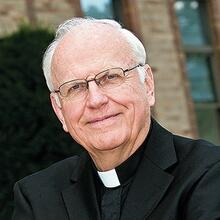Here are three rules of thumb for interpreting apocalyptic literature, which may assist preachers. (1) The literature originated among ancient royal scribes. Employees of the king, they naturally interpreted the course of history as the successive rise and fall of empires, e.g., the Assyrian kingdom followed by the Babylonian kingdom followed by the Persian kingdom. Moreover, taking the rule of the gods seriously, they assumed that the succession of empires reflected the rise and fall of an empire’s patron deity. (2) Destruction and war customarily accompanied change of empire, and the destruction was sometimes expressed metaphorically as the disruption of natural processes such as heavenly luminaries and earthquakes. (3) Biblical authors used this ancient way of speaking to express their conviction that the succession of empires, "the course of history," would eventually end and yield to the empire or kingdom of God (e.g., Daniel). New Testament writers adopted the Old Testament perspective and taught further that the definitive kingdom of God had arrived in Jesus, though it co-exists for the time being with other kingdoms. Christians had to learn to live in this kingdom, which had not yet arrived in its completeness. They thus rejoiced in this kingdom even as they waited for its full realization.
Richard Clifford, S.J.Apocalytpic Literature Readings
Some readings at the end of the liturgical year and the beginning of Advent are from "apocalyptic" books such as Daniel and the "little apocalypses" in the Synoptic Gospels. These passages refer to cosmic disturbances (sun and mood falling out of the sky), wars, and terror-stricken people, giving the impression of punishment by an angry God. The impression is completely false. Apocalyptic literature was written to encourage people and enliven their hope in God’s rule of history.
Show Comments ()
1
Comments are automatically closed two weeks after an article's initial publication. See our comments policy for more.
17 years 7 months ago
When I was in college, I took an independant study on this topic. I wanted to thank you for condensing some of the consistent themes in that type of writing and for mentioning its prevelence in the accepted (Church sanctioned passages) books of the Bible. So many seem to focus on Revelations as the only apocalyptical writing and that just isn't so.
The latest from america
A Reflection for Tuesday of the Eighteenth Week in Ordinary Time, by Molly Cahill
As emergency workers searched for survivors and tried to recuperate the bodies of the dead, Pope Leo XIV offered his prayers for people impacted by the latest shipwreck of a migrant boat off the coast of Yemen.
The Archdiocese of Miami celebrated the first Mass for detainees at “Alligator Alcatraz,” the Trump administration’s controversial immigrant detention center in the Florida Everglades.
Eight decades after the end of World War II, Father George Zabelka exists as a symbol of conscience, one who can communicate the message of Gospel nonviolence.







